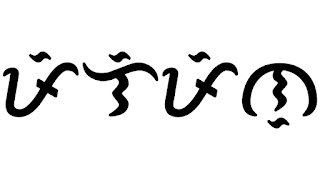In a world of high-stakes diplomacy, economic uncertainty, and military brinkmanship, one ancient game stands out as a powerful metaphor for leadership: chess.
More than just a pastime of intellectuals and strategists, chess is a discipline that demands foresight, patience, courage, and adaptability—traits that are essential for anyone entrusted with the fate of a nation.
So, what if presidents, prime ministers, and world leaders were trained in the art of chess? Not as a public relations stunt or photo op, but as a serious tool for sharpening their decision-making skills. Here's why chess might just be the skill every head of state needs.♟️ Strategic Thinking Over Short-Term Reactions
In chess, every move must be part of a larger plan. Success comes not from reacting impulsively but from anticipating your opponent’s responses, preparing defenses, and setting traps. Sound familiar? It's what great leaders do daily—balancing urgent demands with long-term goals.
Leaders who think like chess masters don’t just “respond to crises”—they position their countries to avoid crises altogether. They see the ripple effects of policies, the hidden costs of alliances, and the long-term consequences of war or peace.
⏳ Patience and Timing Are Everything
Chess punishes impatience. A premature attack or a rushed decision can unravel hours of careful positioning. In leadership, too, timing can mean the difference between a revolution and reform, between collapse and progress.
Leaders who understand timing—when to act and when to wait—have a huge advantage. Chess cultivates this instinct.
🌐 Understanding Opponents' Motives
To win in chess, you have to get inside the head of your opponent. You must see the board from their perspective. This is not just tactical; it’s empathetic. The best leaders do the same—whether they’re negotiating a trade deal, navigating a global crisis, or calming internal dissent.
Chess teaches that victory isn’t always about brute strength; it’s about insight and perception. Global politics needs more of that.
🛡️ Managing Sacrifice and Risk
Every good chess player knows: sometimes you must give up a piece to gain advantage. But not blindly. It’s a calculated sacrifice.
Similarly, leaders often face hard choices—budget cuts, military decisions, unpopular reforms. Chess trains leaders to weigh risks, consider alternatives, and understand the value of what’s at stake.
💬 Discipline, Focus, and Composure Under Pressure
Chess is mentally grueling. One lapse in concentration and the game can slip away. For leaders, every word, every decision is scrutinized. Staying calm under fire, focusing amid chaos—these are survival skills in politics and diplomacy.
Chess sharpens the mental stamina needed to lead through crisis, conflict, and criticism.
🇵🇭 Chess in Leadership: A Filipino Perspective
In the Philippines, chess has long been admired as a game of the wise and patient. The rise of players like Eugene Torre and Wesley So has shown that deep thinking and quiet discipline can elevate individuals onto the global stage. Imagine if those same qualities shaped our politicians, diplomats, and presidents.
If we want future leaders who don’t just make noise—but make sense—we could do worse than teaching them to play chess.
✍️ Final Thought
Chess doesn't teach you how to win every time—it teaches you how to lose gracefully, adapt quickly, and always think before you act.
Isn’t that exactly the kind of leadership the world needs right now?
Donald Trump vs Barack Obama
Obama knows how to play chess per his autobiography. I'm not even sure Trump knows how to play checkers.
 |
Let's play chess at chess.com. Connect with me here: chess.com/member/jfperseveranda.
Photo credit: @cornfed
In an epochal chess match that captured the world's attention, Presidents Donald Trump and Barack Obama faced off in a contest that transcended the board, symbolizing a clash of ideologies and eras.
— Cornfed (@CornfedCrypto) October 20, 2024
President Obama, backed by the media's unwavering support, financial giants, and… pic.twitter.com/GEdIyP2z4l
Join us & help build this Los Angeles Filipino-American community.
Please leave a comment, and click to follow our website LA.pinoybuilt.com. Click on a tag below to browse.













1 Comments
Let's play CHESS!
ReplyDelete